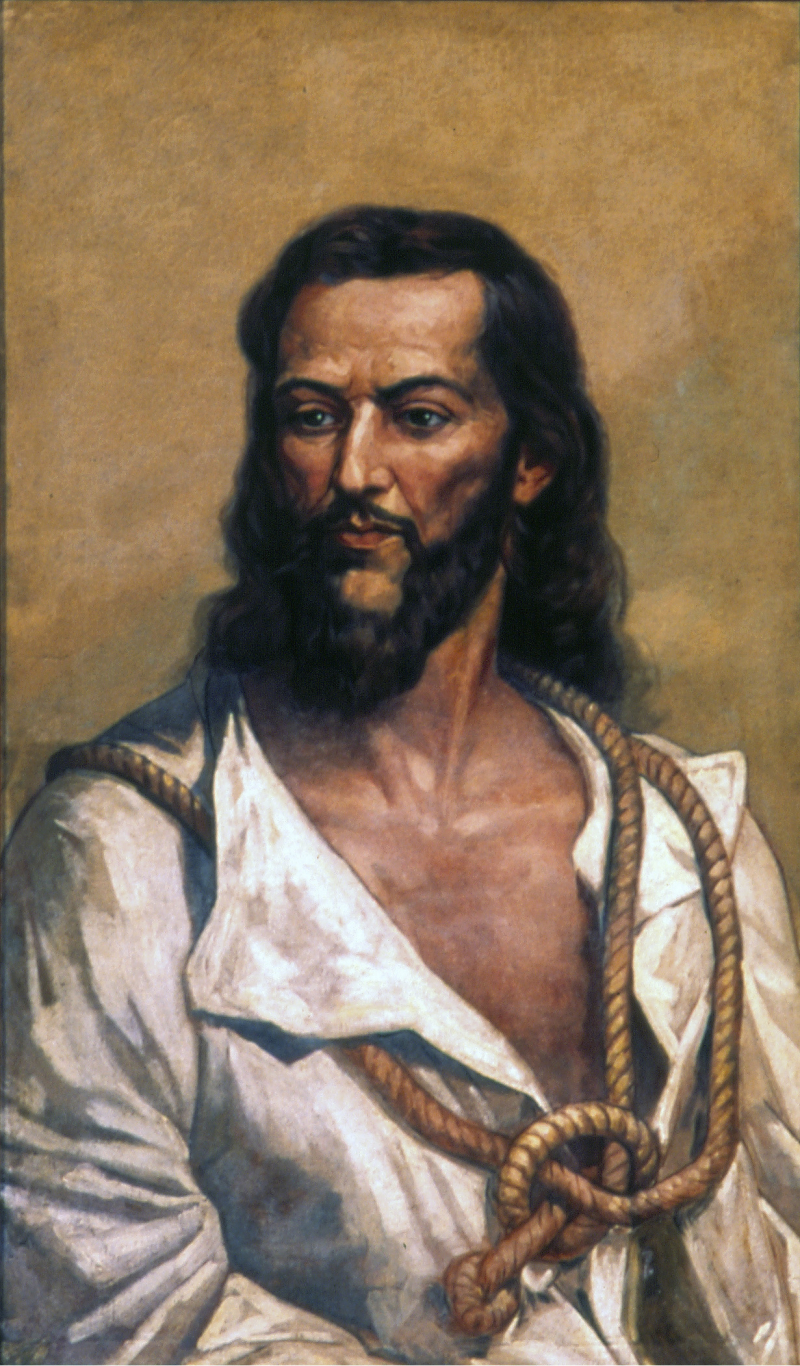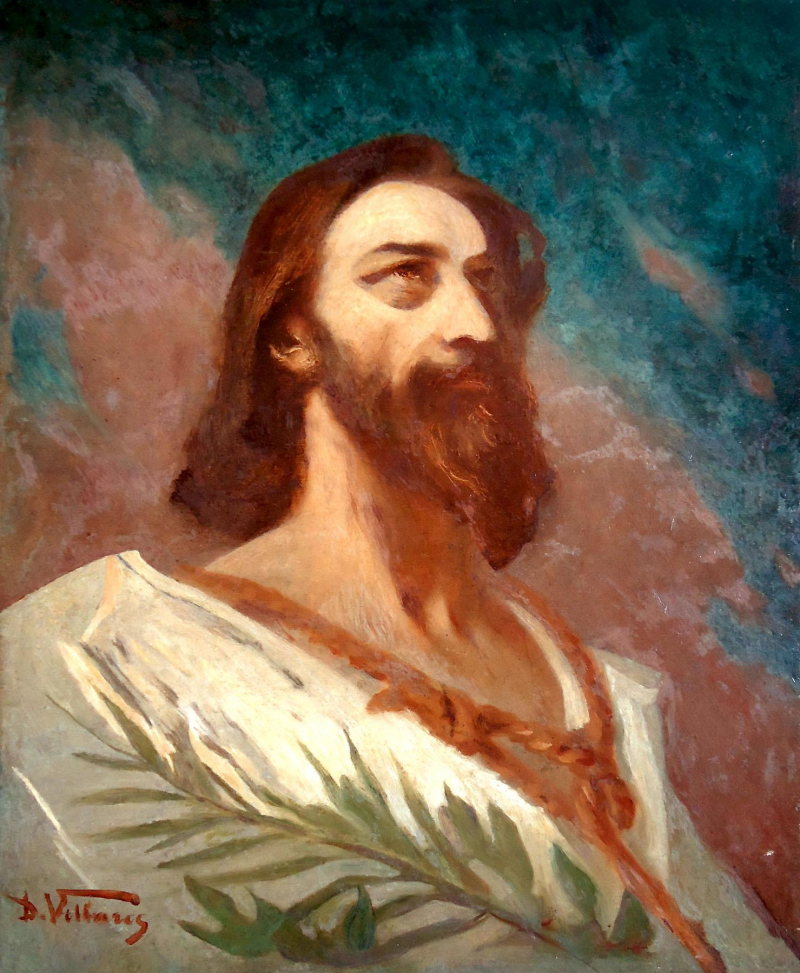Tiradentes
Tiradentes (12 November 1746 - 21 April 1792), known as Joaquim José da Silva Xavier, was a leading member of the colonial Brazilian revolutionary movement known as Inconfidência Mineira, whose goal was full independence from Portuguese colonial power and the establishment of a Brazilian republic. He is among the most important historical figures in Brazil.
Tiradentes was arrested, tried, and publicly hanged after authorities discovered the separatists' plot. He was imprisoned in Rio before being hanged on April 21, 1792. His body was then quartered and the pieces were sent to Vila Rica to be displayed in locations where he used to spread his liberal ideas. His head fell into Ouro Preto but was later lost.
In the late nineteenth century, republicans began to regard Tiradentes as a national hero. The anniversary of his death became a national holiday after the establishment of the Republic in 1889.
His surname, "Tiradentes," became the name of a city in Minas Gerais, city squares in Belo Horizonte, Curitiba, So Paulo, Rio de Janeiro, and Ouro Preto, and a major avenue in Santo Domingo, Dominican Republic.
The hero is commemorated by the 11th Mountain Infantry Battalion, "Tiradentes" Regiment (11º Batalhão de Infantaria de Montanha, Regimento "Tiradentes"), which is currently operational in the Brazilian Army.






